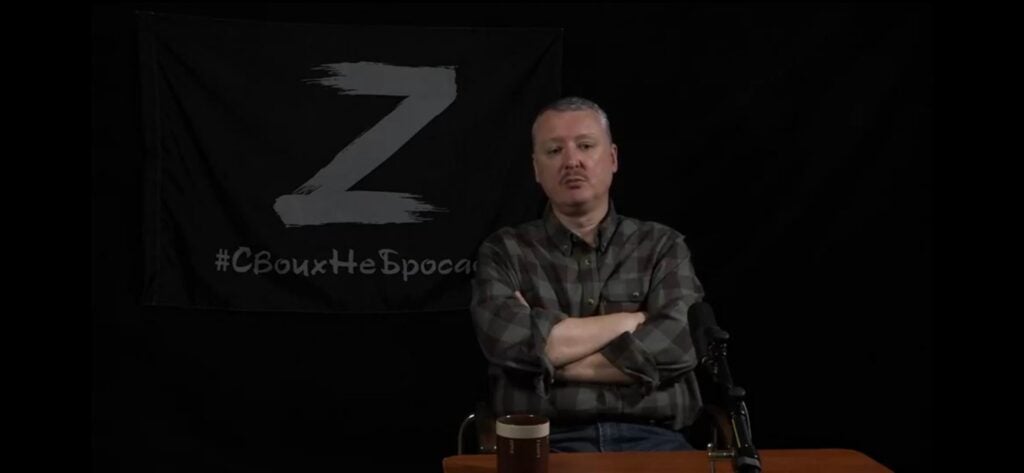Russian Pro-War Kremlin Critic Girkin Arrested For “Extremism”
Former Russian Federal Security Service officer turned ultranationalist pro-war Kremlin critic Igor Girkin was arrested on Friday by Russian law enforcement officers.
News of Girkin’s arrest was announced by his wife, Miroslava Reginskaya, in a post on the Telegram channel Girkin had used to share news and his opinions on the progress of Russia’s invasion of Ukraine.
Miroslava said she had been told that Girkin had been arrested on charges of “extremism” under Article 282 of the Criminal Code of the Russian Federation. Girkin’s lawyer confirmed the arrest to RBC, with the Russian publication’s sources claiming that Girkin’s arrest was the result of a complaint by a former employee of Yevgeny Prighozin’s Wagner Group.
Under the alias of Igor Strelkov, Girkin played a major role in the 2014 Russian takeover and subsequent annexation of Crimea. Following the Russian de facto occupation of Crimea, he became a prominent leader of Russian-backed paramilitary forces in the Donbas, and was made the “defense minister” of the Donetsk People’s Republic.
However, Girkin would cede leadership of paramilitary forces in the Russian puppet state in August 2014, after a post by an account using his name on the VKontakte social network implicated him in the downing of Malaysian Airlines Flight 17 and the death of all 298 people on board, on 17 July of that year. In November 2022, a Dutch court convicted Girkin, another Russian citizen and an Ukrainian citizen in absentia of the murder of the 298 people aboard Flight 17, finding that they had been involved in procuring the Russian Buk surface-to-air missile system and missile that shot down the airliner.
Following the start of the full-scale Russian invasion of Ukraine, Girkin became an outspoken critic of Putin and Russian military leadership’s handling of the invasion, demanding that extreme measures be taken by Russia against Ukraine to make up for poor planning and insufficient resources provided to Russian troops at the start of the invasion. Unlike Russian anti-war activists, Girkin had largely evaded retribution for his criticism, with some analyses suspecting him of receiving protection from factions within the Russian government that share Girkin’s beliefs.
While Prighozin had similarly criticized the Kremlin, Girkin publicly feuded with him, accusing the Wagner Group leader of preparing to seize power shortly before the mercenary group’s short-lived mutiny in late June.

